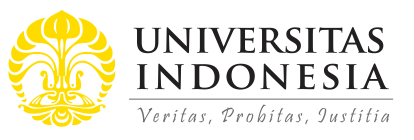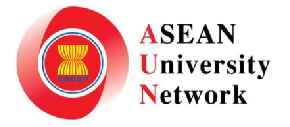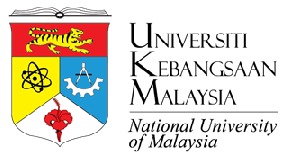
Abstract
The level of literacy among rural communities is still relatively low in Malaysia even though the overall country’s literacy rate is considerably high. Literacy rates among indigenous people are lowest in remote community especially in Sabah and Sarawak. Reasons include low literacy of the parents and poor school attendance. Initiatives for the indigenous community like the Accelerated Literacy Program attempts to bring literacy to a similar level to that of their non-indigenous peers. This study aims to develop and implement a community engagement project through the Literacy Advocacy Program among Orang Sungai who dwells in remote area in Sabah. This is study adopted Community Participation Action Research. Data were gathered through community asset-mapping form on 187 community members and focus group discussion with the community teachers (n=6) . The findings of the asset mapping exercise showed that almost 40% of the Orang Sungai did not attend any formal education. A total of 66% of household heads have no formal occupation and mostly they were farmers. Reasons include they were unable to read, write or count. The findings also showed that there is a need for community literacy program so as to empower the community in the development of the nation. Therefore, the Literacy Advocacy Program was planned using a set of Literacy Advocacy Module. The module consist of 13 sub-modules which require a total of 42-hours of adult learning hours. This program which was conducted in the community hall was participated by 21 community members. The community teachers to carry out the program learning activities were appointed among local trained teachers. Upon completion of the program, participants underwent an oral assessment to measure the effectiveness of the program. The program has showed effective impacts in the adult learning process and the community at large. It has implications on extending similar format to other marginalised communities in Malaysia.
References
Bonilla, T. & Farris, T. (2012). A short guide to community based participatory action research. Retrieved on 18 July 2017 from https://hc-v6-static.s3.amazonaws.com/media/resources/tmp/cbpar.pdf.
Burns, J. C., Paul, D.P., & Paz, S.R. (2012). Advancement project. Retrieved on 27 Mac 2016 from http://communityscience.com/knowledge4equity/AssetMappingToolkit.pdf:
Economic Planning Unit. (2017). Malaysia sustainable development goals voluntary National review 2017. Retrieved on 12 December 2017 from https://sustainabledevelopment.un.org/content/documents/15881Malaysia.pdf
Fatimah Abdullah, Mohd Suhaimi Mohamad & Siti Hajar Abu Bakar. (2011). Cabaran penjagaan tak formal di Malaysia: Satu tinjauan. Seminar Internasional Serumpun Melayu 2011: Pembangunan, Psikologi dan Masalah Sosial; Fakultas Ilmu Budaya Universitas Hasanuddin, Makassar.
Freire, P. (2004). Pedagogy of indignation. London: Routledge. Giles, W. (2010). Teacher education in a remote community: Learning on the job., Asia-Pacific Journal of Cooperative Education,11(3), 57.
Jonsson J. H. (2010). Beyond empowerment: Changing local communities. International Social Work, 53(3): 393-406.
Junaenah Sulehan, Noor Rahamah Abu Bakar, Abd. Hair Awang, Mohd Yusof Abdullah & Ong Puay Liu. (2013). Development at the margins: Livelihood and sustainability of communities at Malaysia-Indonesia borders. Sociologijaiprostor, 197 (3), 547-562.
Knowles, M. (1980). The modern practice of adult education, revised and updated. Englewood Cliffs: Prentice Hall Regents.
Knowles, M., Holton, E., & Swanson, R. (2005). The adult learner: The definitive classic in adult education and human resource development. 6th edition. Amsterdam: Elsevier.
Martin, M., Peters, B. & Corbett, J. (2012). Participatory asset mapping in the Lake Victoria Basin of Kenya, URISA. Journal of the Urban & Regional Information Systems Association, 24 (2), 45-55.
Mayo, P. (1999). Gramsci, Freire, and adult education: Possibilities for transformative action. London: Zed Books.
Mustaffa Omar, Radzi M. M., Selamat M. N., Manaf A. A., Shamsudin M., Saim N. J. (2011). Faktor penentu dan implikasi fenomena depopulasi komuniti pulau kecil di sekitar Mersing. Journal of Tropical Marine Ecosystem, 1, 22-34.
Pimparé, S. (2005). Developing learning communities: Beyond empowerment. Paris: UNESCO.
Rodrigues, K. (2012). It does matter how we teach maths. Journal of Adult Education, 41(1), 29-33.
Roszaman Hussin, Jalilah Md Shah & Dayu Sansalu. (2012). Orang Sungai. Kuala Lumpur: Institut Terjemahan dan Buku Malaysia.
Singh, W. (2017). Gauging the impact of community university engagement initiatives in India. ASEAN Journal of Community Engagement., 1(1), 1-16.
UNESCO. (2012). Removing gender barriers to literacy for women and girls in Asia and the Pacific. Retrieved on 16 Mac 2015 from http://unesdoc.unesco.org/images/0021/002175/217543e.pdf.
UNESCO. (2013). Adult and youth. Literacy. Retrieved on 16 Mac 2015 from http://www.uis.unesco.org/literacy/Documents/fs26-2013-literacy-en.pdf.
UNICEF. (2013). Malaysia Statistic, Malaysian literacy rate. Retrieved on 10 January 2017 from https://www.unicef.org/infobycountry/malaysia_statistics
Vanitha, T., Saedah Siraj & Norlidah Alias. (2014). Development of a responsive literacy pedagogy incorporating technology for the indigenous learners in Malaysia. The Turkish Online Journal of Educational Technology, 13 (2), 44-53.
Westhorp, G., Walker, B., Rogers, P., Overbeeke, N., Ball, D., & Brice, G. (2014). Enhancing community accountability, empowerment and education outcomes in low and middle-income countries: A realist review. London: EPPI-Centre, Social Science Research Unit, Institute of Education, University of London. Retrieved on 10 January 2017 from https://assets.publishing.service.gov.uk
Zalizan Mohd. Jelas, Manisah Mohd. Ali, Norshidah Mohamad Salleh & Nor Aniza Ahmad (2011). Kit alat PIMP. Menerima kepelbagaian: Mewujudkan persekitaran inklusif mesra pembelajaran (Terj.) Bangkok: UNESCO/ Bangi: Universiti Kebangsaan Malaysia.
Recommended Citation
Mohamad, Mohd. Suhamimi and Ali, Manisah Mohd.
(2017).
Inequality in education: experience of eritical Pedagogy and community engagement with Orang Sungai in Paitan, Sabah.
ASEAN Journal of Community Engagement, 1(2).
Available at: https://doi.org/10.7454/ajce.v1i2.83







